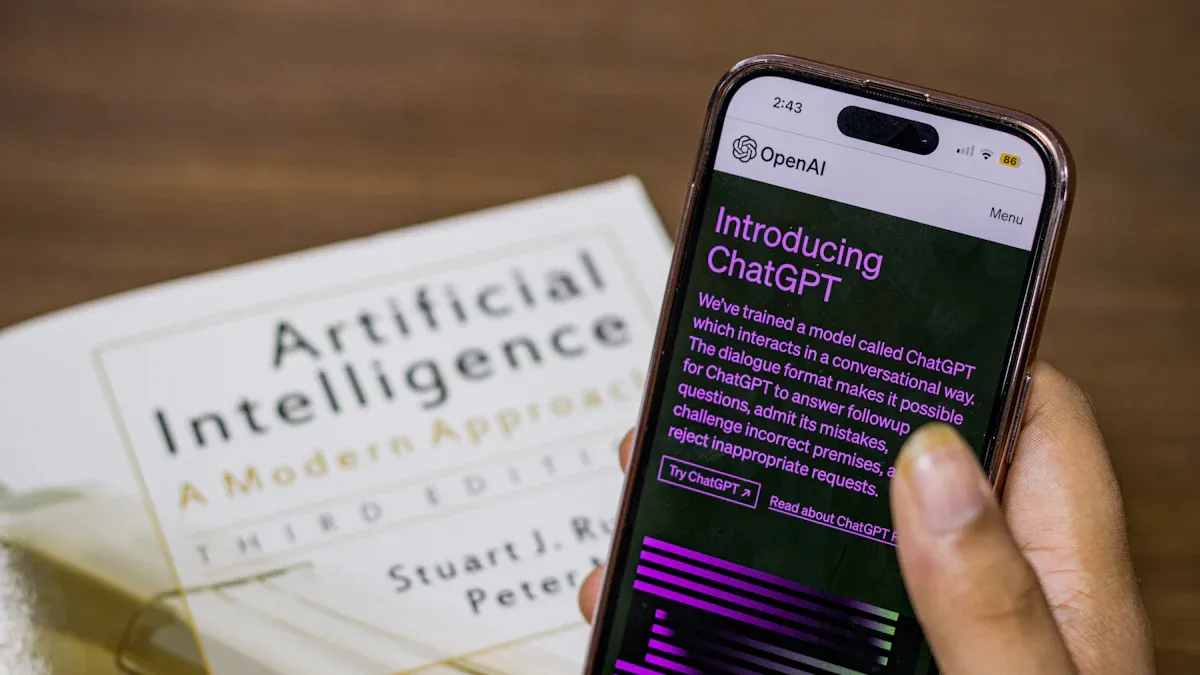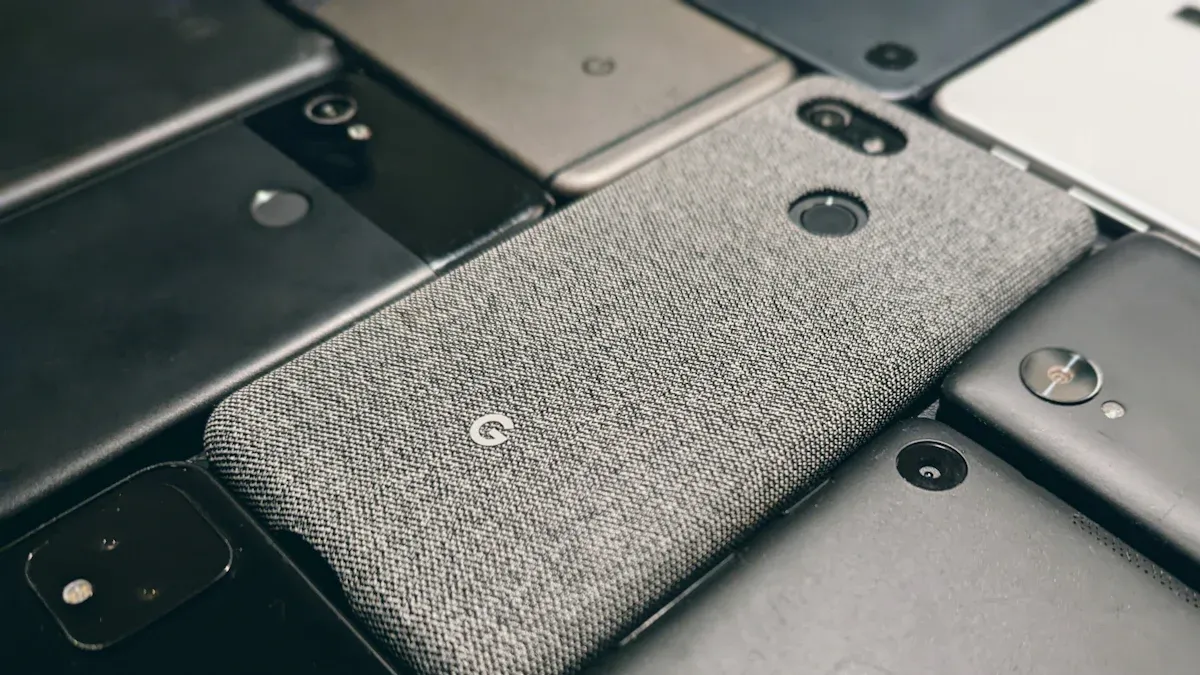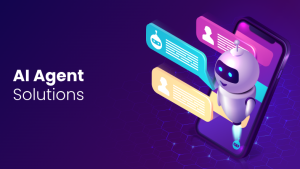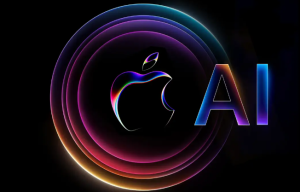
You may think new smartphones and android devices are just about cool screens. But the real surprise is how artificial intelligence changes your daily life. When you look at smartphones vs. ai phones, you see three big differences. Ai features now guess what you need. Ai makes your device work faster. Ai also gives you new ways to keep your privacy safe. Recent surveys show only 33% of Americans want to buy phones for ai features. But 70% of younger users say gen ai is better than they thought.
Key Takeaways
- AI phones watch what you do and remember your habits. They pick apps for you and change settings by themselves.
- AI works inside the phone to make it faster. You get answers quickly even without the internet.
- AI helps keep your data safe by storing it on your phone. It can find dangers and stop unsafe apps.
- Pick an AI phone if you want a smart and changing phone. Pick a regular smartphone if you like simple and known controls.
- Younger people think AI features are helpful. Many like phones that learn and change for them.
Smartphones vs. AI Phones: Personalization
AI User Adaptation
When you look at smartphones and ai phones, you see how artificial intelligence changes your day. AI phones use generative ai to learn what you do. They guess what you want before you ask. Your android device can suggest apps for you. It can change your screen or camera settings based on your habits. You get translation during calls right away. Your notifications change to fit your needs and help you focus.
AI phones use smart computer programs to guess what you need. They make your phone feel more personal than regular smartphones, which use set programs.
You can find these ai features in new android phones from Apple, Samsung, and Google. Here is a quick look at what each brand gives you:
| Brand | Feature Description |
|---|---|
| Google Assistant gives smart searches and tips just for you. | |
| Samsung | Bixby uses deep learning for easy voice control and helps you work better. |
| Apple | AI works on your device for better privacy and less cloud use. |
| All | You get translation for calls and messages that changes with your language. |
| All | AI suggests apps and changes notifications to help you focus. |
You also get ai personalization, cool reality features, and even quantum computing for faster speed. AI helps your camera spot objects, edit photos, and improve pictures as you take them. You can use ai photography and ai zoom to get great shots. The ai-powered zoom works with your triple-lens camera. You get a stylish phone and a strong processor for smooth use.
Traditional Customization
Regular smartphones let you pick your wallpaper and move your apps. You can choose your ringtone and change your screen brightness. You can turn on dark mode. These choices give you some control. But your phone does not learn what you like. You have to change things yourself.
AI helpers give answers that match what you like and do. They set reminders for you and guess what you need by watching how you use your phone.
Studies show ai personalization works better than regular settings. AI changes things as you use your phone. Manual settings stay the same until you change them. This means an android phone with ai features gives you a better and more fun experience. You get faster speed, smarter cameras, and a screen that fits you.
If you want a phone that learns with you, pick an ai phone with generative ai and smart features. If you want to control everything yourself, a regular smartphone still works well and feels familiar.
AI Processing Power

On-Device AI
You use your android phone for lots of things each day. AI phones now have generative ai built in. This lets your phone work on information by itself. It does not need to send data to the cloud. You get answers right away, even with no internet. Your phone can spot faces, change languages, and zoom in on photos with one tap. New android phones have strong processors for these jobs. You notice this when you use the camera, play games, or get help with homework.
Here is a table that shows how on-device ai and cloud-based ai are different:
| Aspect | On-Device AI | Cloud-Based AI |
|---|---|---|
| Processing Location | Smartphone's local hardware | Remote servers |
| Speed | Near-Instantaneous | Dependent on Network |
You see the speed when you use ai zoom or live translation. Your android phone shows results right away. You do not wait for data to go to a server and back. This makes your phone feel quicker and more personal.
Speed & Efficiency
AI phones have special chips and memory to make them faster. You get smooth use when you use generative ai for editing photos or searching online. Your android phone can show pictures, zoom in, and switch apps with no lag. The oled display gives bright colors and clear images, so everything looks great.
Some important ways to measure performance are:
- Inference time: how fast your phone works on data.
- Energy efficiency: how much battery your phone uses for ai.
- Deep learning models: used for sorting images, spotting faces, and ai zoom.
You see these upgrades in new android phones. For example, LPDDR5X DRAM gives up to 9600 Mbps speed and uses 27% less power. UFS 4.0 storage is twice as fast as old types, so your phone can show and zoom through photos quickly.
Here are some real-life ways ai helps you every day:
- You press a button to use an assistant that can book dinner or translate speech fast.
- You use your voice to find and send flight choices.
- You take a picture of a plant, and your phone uses generative ai to tell you how to care for it.
Your android phone saves power well. On-device ai means you do not always need the cloud, so you save battery. Features like ai cameras, health tracking, and games all work well without draining your phone. The design, with a strong processor and oled display, helps you use every feature. You can zoom in on photos, watch videos, and use ai tools all day.
Users say ai phones are faster and easier to use. You get real help with hard tasks, and your phone keeps up with you.
Privacy & Security

AI Privacy Features
You want your android phone to keep your data safe. AI features now give you new ways to protect your privacy. AI phones use on-device processing, so your sensitive data stays on your phone. This means your camera system, ai photography, and even your triple-lens rear-camera setup work without sending your photos to the cloud. AI features like anomaly detection watch for strange activity. If someone tries to break into your phone, the system can spot it fast.
Many android phones now use advanced biometric systems. You unlock your phone with your face using 3D mapping. Some models, like the HONOR Magic6 Pro, have a special security chip and dual-TEE technology. These protect your passwords, camera data, and transactions. You also get features like Auto Protect, which secures Wi-Fi in public places, and Enhanced Privacy Protection, which encrypts your internet traffic. You can see your protection history and control what data stays on your device.
AI features help you by blocking risky apps and keeping your personal information safe. You can turn off online data processing, so your phone uses AI only on your device.
AI-driven privacy gives you real-time monitoring and threat detection. Your android phone can spot new threats and stop them before they cause harm. This makes your phone more secure than ever.
Traditional Security
Traditional smartphones use rule-based security. You set a password or PIN. The phone locks after a few tries. These methods work, but they do not adapt to new threats. Your android device may not spot a new kind of attack until it is too late. Older systems collect less data, so they have fewer privacy risks. But they also miss out on the performance and protection that AI features bring.
Here is a table to show the main differences in privacy risks:
| Aspect | AI-first Devices | Traditional Smartphones |
|---|---|---|
| Data Processing | Learn from lots of data, can infer personal info | Process single tasks, less inference |
| Vulnerabilities | New types of privacy breaches | Fewer new vulnerabilities |
| Data Collection | Collect data all the time, including biometrics | Collect less data, usually when you allow it |
You should know that AI features can sometimes lead to privacy leaks. In March 2023, a ChatGPT bug let users see other people’s chat titles. Still, AI features help your android phone react to threats faster than old methods. Studies show that AI and machine learning improve threat detection and reduce false alarms. You get better performance, smarter camera system controls, and safer use of your oled display and zoom tools.
---
Privacy & Security
AI Privacy Features
You want your android phone to keep your data safe. AI features now give you new ways to protect your privacy. AI phones use on-device processing, so your private data stays on your phone. Your camera system and ai photography work without sending photos to the cloud. Your triple-lens rear-camera setup also keeps pictures on your device. AI features like anomaly detection look for strange things. If someone tries to break in, your phone can spot it quickly.
Many android phones use advanced biometric systems. You unlock your phone with your face using 3D mapping. Some phones, like the HONOR Magic6 Pro, have a special security chip and dual-TEE technology. These keep your passwords, camera data, and transactions safe. You also get Auto Protect, which keeps Wi-Fi safe in public places. Enhanced Privacy Protection encrypts your internet traffic. You can check your protection history and choose what data stays on your device.
AI features help block risky apps and keep your personal information safe. You can turn off online data processing, so your phone uses AI only on your device.
AI-driven privacy gives you real-time monitoring and threat detection. Your android phone can find new threats and stop them before they cause problems. This makes your phone more secure than ever.
Traditional Security
Traditional smartphones use rule-based security. You set a password or PIN. The phone locks after a few wrong tries. These methods work, but they do not change for new threats. Your android device may not notice a new kind of attack until it is too late. Older systems collect less data, so there are fewer privacy risks. But they miss out on the better performance and protection that AI features give.
Here is a table to show the main differences in privacy risks:
| Aspect | AI-first Devices | Traditional Smartphones |
|---|---|---|
| Data Processing | Learn from lots of data, can guess personal info | Process single tasks, less guessing |
| Vulnerabilities | New types of privacy problems | Fewer new problems |
| Data Collection | Collect data all the time, including biometrics | Collect less data, usually when you allow it |
You should know that AI features can sometimes cause privacy leaks. In March 2023, a ChatGPT bug let users see other people’s chat titles. Still, AI features help your android phone react to threats faster than old ways. Studies show that AI and machine learning help find threats and lower false alarms. You get better performance, smarter camera controls, and safer use of your oled display and zoom tools.
You now know that smartphones and ai phones are different in three main ways. Ai phones give you more personalization, faster speed, and better privacy tools. Experts say you should get at least 8GB RAM for the best ai features. Ai phones are good if you want a phone that learns what you like. Regular smartphones are better if you want simple controls. Look at the table below to see how these things can change your daily life:
| Feature/Trend | Description |
|---|---|
| AI Integration | On-device ai features for easy voice and text help |
| Personalized User Experience | More custom interactions with ai features |
| Digital Wellness Awareness | Gen Z uses ai features to help manage screen time |
What you pick depends on your habits, age, and if you like new tech. Many people now want ai features in their next phone. If you want a phone that changes with you, pick an ai phone in 2025.
FAQ
What makes an AI phone different from a regular smartphone?
AI phones learn your habits and adjust settings for you. Regular smartphones need you to change things yourself. You get a more personal experience with AI phones.
Can AI phones protect my privacy better?
AI phones use on-device processing to keep your data safe. They spot threats quickly and block risky apps. You control what information stays on your phone.
Do AI features slow down my phone?
You get faster performance with AI phones. Special chips handle tasks quickly. You see less lag when you use apps, take photos, or play games.
Should you buy an AI phone or a regular smartphone?
- Choose an AI phone if you want your device to learn and adapt to you.
- Pick a regular smartphone if you like simple controls and fewer new features.
- Think about your daily needs before you decide.







